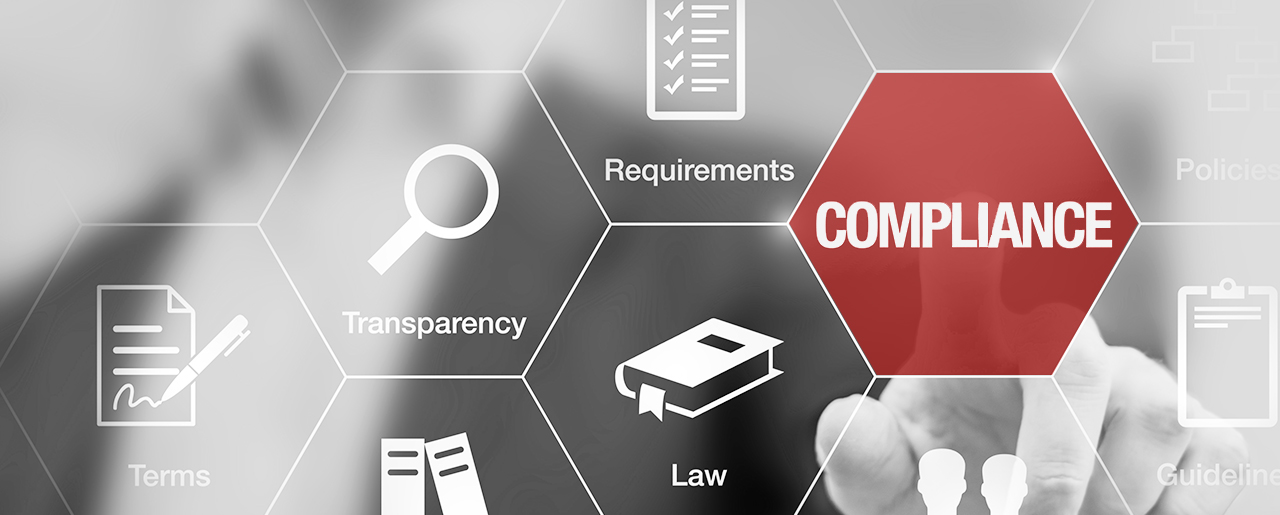In 2023, mortgage providers are facing increased scrutiny regarding data privacy and transparency, making compliance management a crucial focus. According to a survey conducted last year, 70% of lenders expressed concerns about compliance, especially regarding the collection of data from small businesses. Additionally, new regulations such as Loan Level Price Adjustments (LLPAs) are adding complexity while promoting fairness for homebuyers from marginalized backgrounds.
To Effectively Meet Mortgage Compliance Requirements, Here Are Five Practical Strategies
1. Identify and eliminate obstacles in compliance management process
Streamline your compliance management workflow. Given the persistent complexity of mortgage compliance laws and the government’s emphasis on income redistribution in a fluctuating economic landscape, lenders must adapt proactively. Eliminating any bottlenecks in your workflow, such as data silos or stakeholder confusion, becomes paramount. This can be achieved through integrating your technology stack, removing duplication, and automating or outsourcing repetitive tasks.
2. Prioritize compliance when selecting mortgage process outsourcing partners
Historically, the mortgage industry has relied on outsourcing to reduce in-house workloads and take advantage of cost-efficient outsourcing locations. However, not all offshore partners adhere fully to US mortgage mandates, thereby increasing risk factors. It is crucial to consider compliance as a determining factor when choosing an offshore outsourcing partner, in addition to cost and credibility.
3. Enhance your reporting capabilities
Achieving compliance is insufficient if you cannot demonstrate adherence to guidelines. Strong data capabilities and digitally enabled reporting tools are essential. Generating scheduled reports on costs, operations, and borrower information, as well as event-based reports on aspects like good faith settlements and mortgage service disclosures, are crucial. Manual reporting processes can introduce delays and hinder meeting deadlines, making automated reports indispensable for mortgage compliance.
4. Establish accurate compliance metrics
Successful mortgage compliance requires all stakeholders to execute appropriate actions within specified timelines. Defining clear metrics helps standardize compliance management processes. Determine the duration for completing specific workflows, assess compliance risk scores for different products, and establish intervals for quality control audits. Quantifying these measures transforms mortgage compliance into a tangible and actionable function rather than a neglected item.
5. Keep Up with mortgage compliance updates
The ever-evolving nature of mortgage compliance presents a significant challenge. Lenders and servicers must possess precise knowledge of the laws they must comply with, even if they rely on in-house or outsourced legal counsel. It is also beneficial to train teams on relevant laws to ensure their integration into daily workflows. Key areas to focus on include
TRID (TILA-RESPA Integrated Disclosure)
Combines Truth in Lending Act data with RESPA data to protect borrowers by providing comprehensive information during the mortgage application, closing, and settlement processes.
Home Ownership Protection Equity Act (HOPEA)
Requires lenders to furnish additional information to high-value homebuyers, with potential variations in rules across different states.
Consumer credit laws
Enforce restrictions on predatory lending practices, often including fee caps and licensing requirements, which differ across states.
Good Faith Estimate (GFE) rules
Oblige mortgage companies to provide borrowers with an estimate of total closing costs within three days of receiving the application, covering aspects like title searches and property inspections.
Home Mortgage Disclosure Act (HMDA)
Mandates reporting to regulatory authorities regarding credit offerings within the vicinity of your office location.
Staying up to date with news and developments in these five legal areas is crucial to prevent any potential mortgage compliance issues. Additionally, they must have the capability to collect relevant data and accurately report on it.
How PrivoCorp can support?
When it comes to staying compliant in mortgage servicing, partnering with a trusted and experienced end-to-end mortgage solution provider like PrivoCorp can provide valuable support. PrivoCorp offers comprehensive solutions to meet your mortgage servicing needs. We have a deep understanding of compliance requirements and employ industry best practices to ensure adherence to regulatory guidelines. By leveraging our decades of expertise, advanced technology platforms, and skilled professionals, you can enhance your compliance efforts and focus on delivering exceptional mortgage servicing experiences to your customers. PrivoCorp aligns with the keywords mortgage servicing and outsourcing mortgage processing support services.
Conclusion
Staying on top of mortgage compliance requirements is crucial for lenders and mortgage professionals. Implementing effective strategies like identifying obstacles in the compliance management process, defining accurate compliance metrics, improving reporting capabilities, keeping up with compliance updates, and partnering with a trusted mortgage solution provider, such as PrivoCorp, is essential.
Maintaining a strong compliance posture protects your organization from penalties, enhances customer trust, and ensures ethical practices. Effective compliance management processes and metrics allow you to monitor performance and make data-driven decisions. Keeping up with compliance updates ensures you adapt to regulatory changes.
Partnering with PrivoCorp provides valuable support in achieving and maintaining compliance. Their expertise, technology platforms, and skilled professionals enhance your mortgage servicing operations while mitigating compliance risks.
By embracing these strategies and partnerships, you establish a culture of compliance, deliver exceptional service, and contribute to the integrity of the mortgage industry. Prioritizing compliance demonstrates your commitment to excellence and customer satisfaction in the dynamic mortgage landscape.








